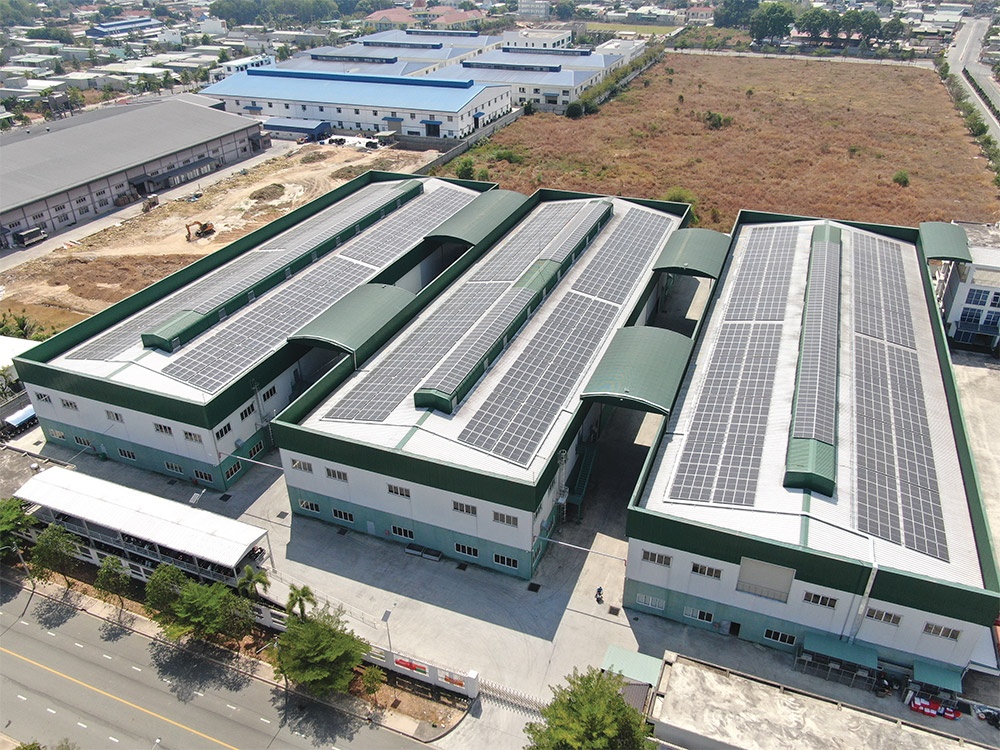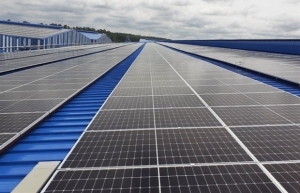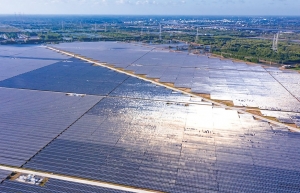Rooftop solar proposal deemed precautionary step
In a draft decree on encouraging the development of rooftop solar power, which is in consultation for submission to the government, the Ministry of Industry and Trade (MoIT) has proposed to install such power in homes, offices, and buildings with solar for self-use. If connected to the national grid, the transmission price will be set at zero.
 |
| Rooftop solar proposal deemed precautionary step, illustration photo/ Source: Shutterstock |
This has sparked controversy, with some saying the policy is counterproductive as a way of encouraging the public and businesses to participate.
Ngo Duc Lam, former vice president of the MoIT’s Institute of Energy, said that not being able to sell excess electricity will lead to poor performance of solar power, and with no set purchase price, it will be difficult to encourage investment.
“If excess electricity output from the solar power system is sold to the grid, it will support the economy and calm retail electricity prices,” he said.
Nguyen Quoc Viet, deputy director of the Vietnam Institute of Economic and Policy Research, said the policy was against market principles.
“It’s very hard to get businesses and individuals to invest in rooftop solar power. For households, a rooftop solar system can cost tens of thousands of US dollars. If people cannot sell the excess electricity, they will be very hesitant to invest in the power system,” Viet said. “In the case of not selling to Vietnam Electricity, we should consider deducting the output consumed in the payment period, or calculating it by a percentage compared to the grid electricity purchase price.”
Nguyen Anh Tuan, vice president of the Vietnam Energy Association, said the policy was a precautionary and necessary step to prevent policy exploitation in a new industry. However, exceptions should be considered for cases in which there are urgent power needs due to rooftop solar power’s ability to be deployed quickly.
“Clear definitions are needed to minimise possible misinterpretations,” he said. “The MoIT should consider remote areas with difficult electricity transmission to become exceptions and be granted special status. Perhaps, households with storage systems could sell electricity to the grid during peak hours at a higher price to encourage storage installation and support the system.”
Minister of Industry and Trade Nguyen Hong Dien said that with the current transmission and distribution system, measures to prevent backflow and buying prices at zero were appropriate to prevent policy profiteering. “A self-producing and self-consuming system is a breakthrough in efforts to remove legal barriers to power source development, while numerous specialised legal regulations have not kept up with reality,” the minister said. “Allowing trading in energy produced by a self-producing and self-consuming system could lead to market shocks, potentially causing an imbalance in power sources.”
On the other hand, the MoIT has advised the government that self-generated rooftop solar systems can be connected to the grid without requiring a permit. In addition, owners of structures equipped with such systems do not need to amend their land uses, as under current regulations.
“Self-generated rooftop solar power is exempt from some legal provisions while enjoying various incentives. Allowing commercial activities means businesses and investors must comply fully with current regulations,” the minister said.
If rooftop solar power were allowed to be traded, according to Dien, there could be rapid and volatile developments and difficulties in managing power sources and ensuring safety. Traditional sources of power such as coal, gas and hydroelectric projects and their investors could also lose some of their current benefits.
However, the zero price policy would be only temporary and a different approach to rooftop solar power’s financial utilisation could be taken in the future.
According to the MoIT’s Electricity Regulatory Authority, total rooftop solar capacity is currently about 7,660MW, accounting for more than 9 per cent of total capacity, or nearly 4 per cent of the entire national electricity system’s output. In terms of installed capacity, rooftop solar power has a higher proportion than many other types of renewable energy power, such as wind and biomass.
Vietnam has set a target of having half of its office and residential buildings equipped with solar panels by 2030, as per the Power Development Plan VIII. The country is prioritising the development of solar and wind power in residential areas, industrial structures, and offices.
 | Deputy PM highlights incentive policies for rooftop solar power installation Deputy Prime Minister Tran Hong Ha highlighted the importance of rooftop solar power in ensuring energy security, saying that there needs to be mechanisms and policies to encourage organisations and individuals to invest in solar power. |
 | Rooftop solar power puts IPs on the map Transferring to renewable energy through installing rooftop solar power systems is set to help foster competitive capacity and further the sustainable development of businesses. |
What the stars mean:
★ Poor ★ ★ Promising ★★★ Good ★★★★ Very good ★★★★★ Exceptional
Related Contents
Latest News
More News
- Trung Nam-Sideros River consortium wins bid for LNG venture (January 30, 2026 | 11:16)
- Vietnam moves towards market-based fuel management with E10 rollout (January 30, 2026 | 11:10)
- Envision Energy, REE Group partner on 128MW wind projects (January 30, 2026 | 10:58)
- Vingroup consults on carbon credits for electric vehicle charging network (January 28, 2026 | 11:04)
- Bac Ai Pumped Storage Hydropower Plant to enter peak construction phase (January 27, 2026 | 08:00)
- ASEAN could scale up sustainable aviation fuel by 2050 (January 24, 2026 | 10:19)
- 64,000 hectares of sea allocated for offshore wind surveys (January 22, 2026 | 20:23)
- EVN secures financing for Quang Trach II LNG power plant (January 17, 2026 | 15:55)
- PC1 teams up with DENZAI on regional wind projects (January 16, 2026 | 21:18)
- Innovation and ESG practices drive green transition in the digital era (January 16, 2026 | 16:51)

 Tag:
Tag:



















 Mobile Version
Mobile Version